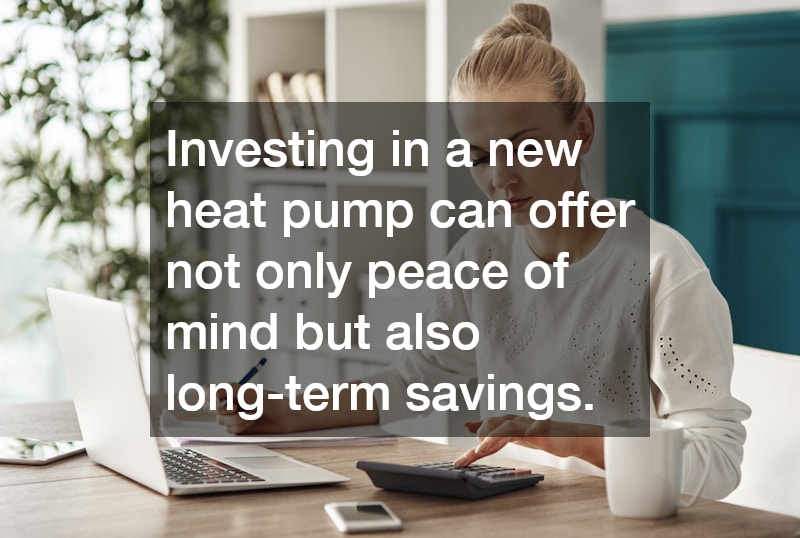Heat pumps play a crucial role in maintaining a comfortable temperature in your home by efficiently heating and cooling the air. They are a central part of our modern living, offering both environmental and economic benefits. However, like any other appliance, heat pumps have a finite lifespan and will eventually require replacement to maintain optimal efficiency and comfort.
Understanding when a heat pump replacement is necessary can save you from the inconveniences of breakdowns and the expenses of urgent repairs. Recognizing the signs of a failing heat pump can help you make a timely decision and ensure uninterrupted home comfort.
In this article, we delve into the top signs indicating that your heat pump may need a replacement, allowing you to make an informed decision when the time comes.
Consistent Increase in Energy Bills
A telltale sign that it might be time for a heat pump replacement is an unexplained increase in your energy bills. A rising cost of electricity, despite no significant changes in usage, often suggests that your heat pump is losing efficiency. This inefficiency compels the system to consume more power to maintain the desired indoor temperature.
Over time, as components wear out, the heat pump has to work harder to achieve its tasks, thereby consuming more energy. For example, the compressor, which is a critical component, might struggle near the end of its lifespan, leading to increased electricity use. Regular maintenance can temporarily mitigate these effects, but eventually, replacement becomes a more cost-effective long-term solution.
It’s worth noting that natural fluctuations in energy prices can also affect your utility bills, but if there’s a consistent upward trend with no rate changes, your heat pump may be the culprit. In such cases, consulting with an HVAC professional can help determine whether a replacement is warranted. A new heat pump model can significantly enhance energy savings, bringing down your utility expenses.
Frequent Need for Repairs
If you find yourself frequently calling an HVAC technician to fix your heat pump, it’s a strong indication that you might need a replacement. Frequent repairs are not only inconvenient but can also add up to significant costs over time. When your heat pump becomes unreliable and starts needing repairs more often, its overall efficiency diminishes.
Existing units that have become repair-prone have often surpassed their intended service life, suggesting that parts are wearing out. Investing in continual repairs for a dated model eventually surpasses the cost-effectiveness of acquiring a new system. Considering the frequency and severity of repairs can help determine if the unit is nearing the end of its useful life.
A new heat pump may initially seem like a significant investment, but it can save you from ongoing repair expenses. Moreover, newer models are more energy-efficient and reliable, which means a longer lifespan and fewer breakdowns. Therefore, assessing repair frequency and factoring in potential costs is critical when deciding on a heat pump replacement.
Inadequate Heating or Cooling
Your heat pump is designed to keep your home comfortable throughout the seasons, providing both heating and cooling as needed. If it struggles to maintain a consistent temperature or its performance fluctuates drastically, it could signal the need for a replacement. Such performance issues often arise due to worn-out components that can’t effectively regulate temperature anymore.
Sometimes, inadequate performance is due to minor issues such as clogged filters or malfunctioning thermostats, but consistent temperature inconsistencies mostly indicate something more serious. When the heat pump fails to distribute air evenly around your home, it can lead to some areas feeling too cold while others are too warm. These performance challenges grow worse over time, suggesting that a replacement is imminent.
It’s essential to address these issues as they can affect your comfort and potentially impact your overall health. A new heat pump can correct these imbalances, ensuring even and efficient heating and cooling throughout your home. Therefore, if temperature control becomes a consistent problem, it may be time to evaluate your heat pump for replacement.
Investing in a new heat pump can offer not only peace of mind but also long-term savings and improved energy efficiency. As technology advances, modern heat pumps provide better performance than ever before, making the investment worthwhile. Remember, taking proactive steps now can save you from more substantial difficulties down the line.
.


